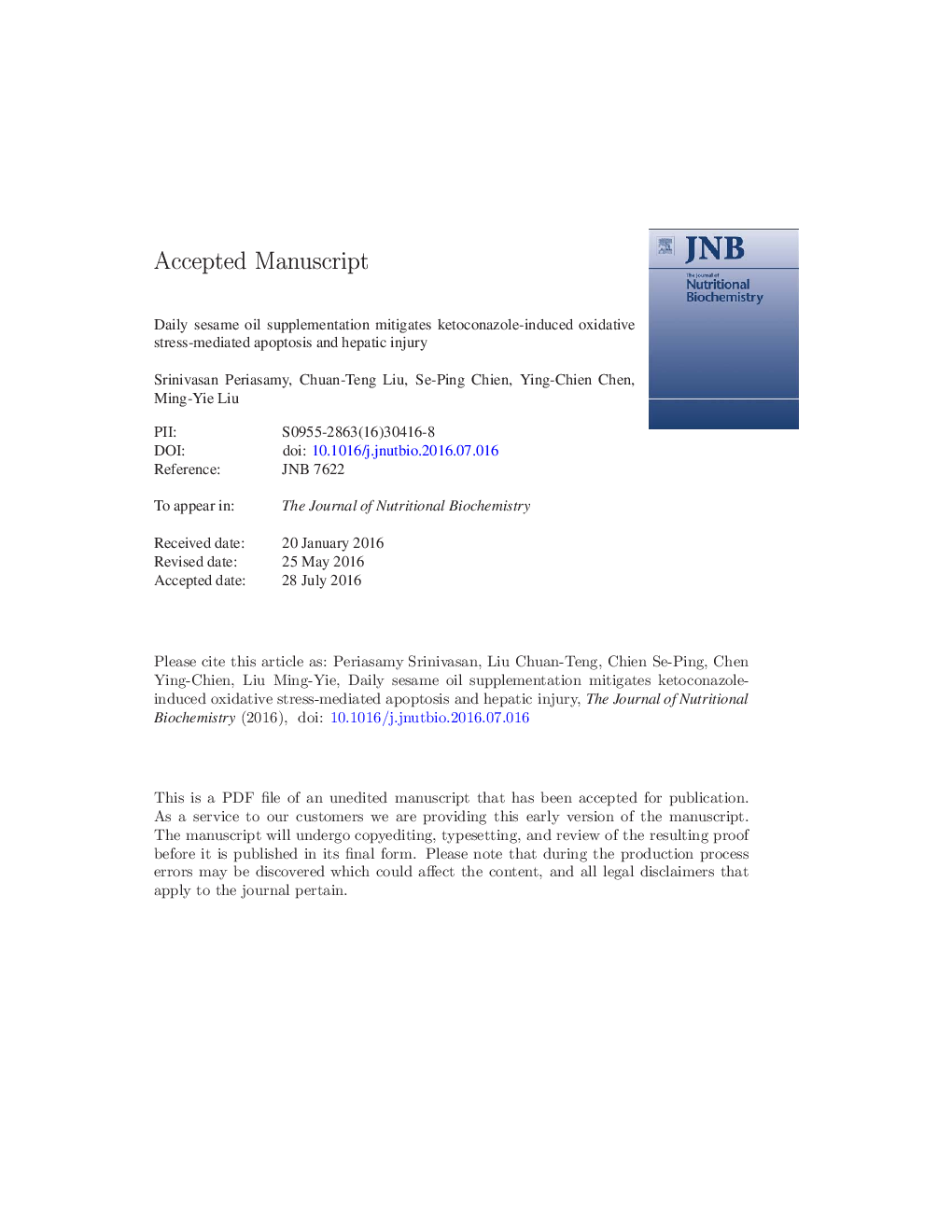| Article ID | Journal | Published Year | Pages | File Type |
|---|---|---|---|---|
| 8336530 | The Journal of Nutritional Biochemistry | 2016 | 38 Pages |
Abstract
Ketoconazole (KCZ) is the most commonly used systemic antifungal drug. However, long-term treatment of KCZ induces hepatic injury. Oxidative stress is involved in KCZ-induced hepatic injury. Oxidative stress plays an important role in apoptosis-associated hepatic damage. Sesame oil is rich in potent antioxidants and antifungal constituents. It attenuates hepatic injury by inhibiting oxidative stress. Thus, sesame oil may protect against KCZ-induced oxidative stress, apoptosis and hepatic damage. The aim of the present study was to investigate the protective effect of sesame oil as a nutritional supplement on KCZ-induced hepatic injury in mice. KCZ (300 mg/kg/day) was administered by gastric intubation; 30 min later, sesame oil (0, 0.0625, 0.125, 0.25 or 0.5 ml/kg/day; p.o.) was administered to mice for 14 days. Blood and liver tissue were collected. Hepatic injury was evaluated by serum biochemistry and histology. Oxidative stress was evaluated by myeloperoxidase activity, p47-phox, reactive oxygen species generation, lipid peroxidation and glutathione level. Apoptosis was evaluated by p53, caspase-3, Bcl-2, Bax and Cyto-C expression. Osteopontin was measured to assess liver healing. Sesame oil attenuated hepatic injury; it also decreased oxidative stress and apoptosis in KCZ-treated mice. Sesame oil may be used as a nutritional supplement with existing antifungal therapies to neutralize the adverse hepatotoxic nature of antifungal drugs by attenuating hepatic apoptosis through redox system to protect and heal liver injury in KCZ-treated mice.
Related Topics
Life Sciences
Biochemistry, Genetics and Molecular Biology
Biochemistry
Authors
Srinivasan Periasamy, Chuan-Teng Liu, Se-Ping Chien, Ying-Chien Chen, Ming-Yie Liu,
